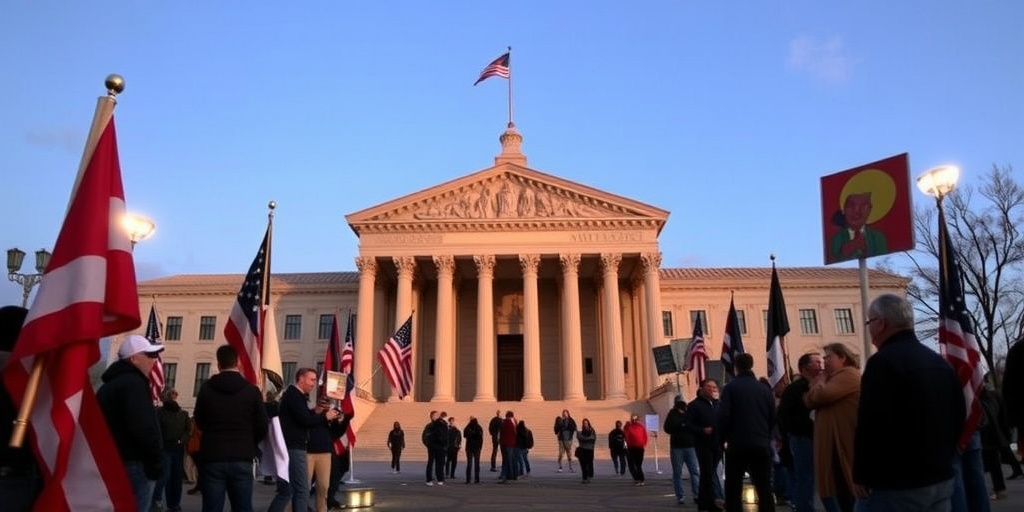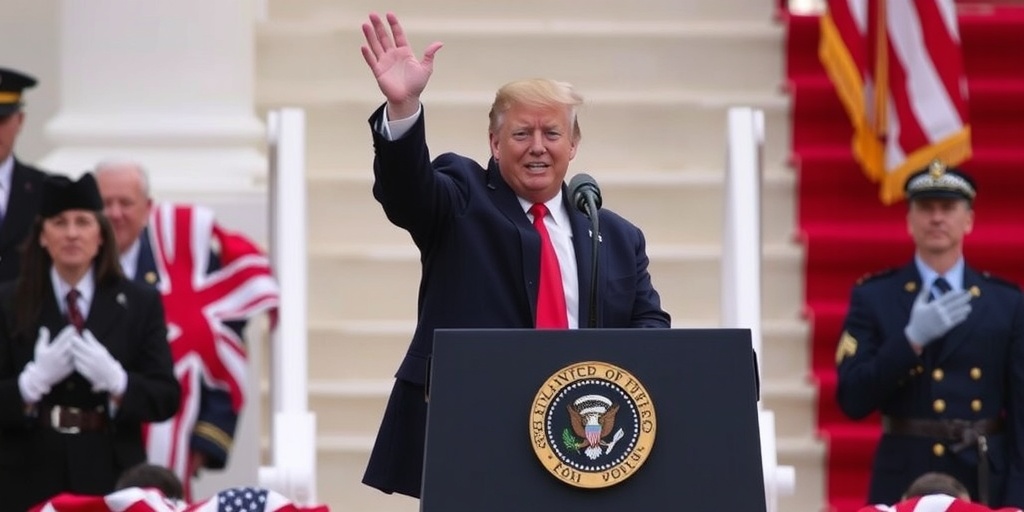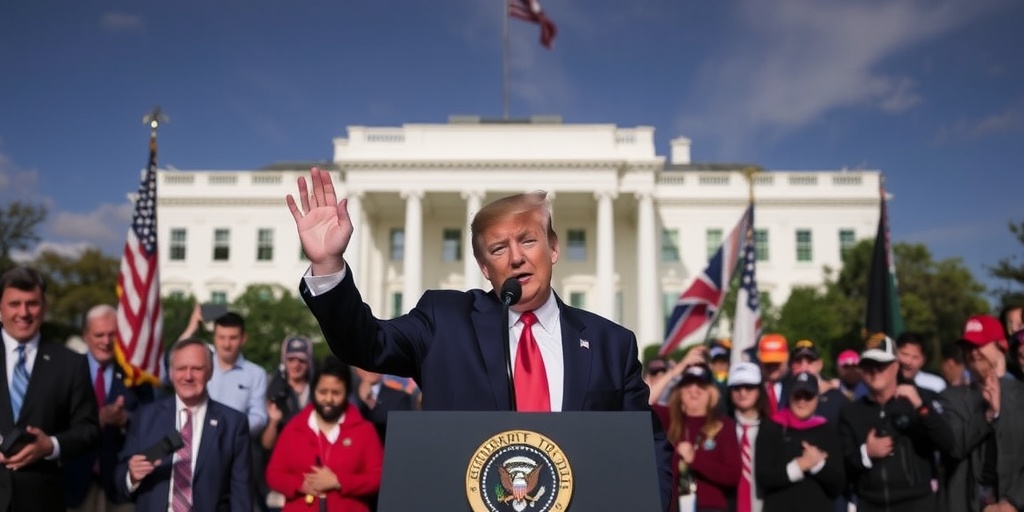Now Reading: Judge Halts Immigration Raids in Places of Worship
-
01
Judge Halts Immigration Raids in Places of Worship
Judge Halts Immigration Raids in Places of Worship

Federal Judge Blocks Immigration Enforcement at Places of Worship Following Religious Groups’ Lawsuit
A significant ruling was made by a federal judge in Maryland that temporarily prevents federal immigration agents from conducting operations near various places of worship across the United States. This decision comes as a response to a lawsuit filed by a coalition of mostly Quaker religious organizations, which argued that the recent shift in immigration enforcement policies under the Trump administration has instilled a climate of fear among congregants, leading to decreased attendance at services and outreach events.
Under the previous Biden-era policy, there had been established protections against immigration enforcement occurring in sensitive locations, including schools, hospitals, and, crucially, places of worship. However, the Trump administration’s actions have reversed this longstanding practice, allowing Immigration and Customs Enforcement (ICE) agents to operate near religious institutions that had previously been considered off-limits.
In his opinion issued on Monday, Judge Theodore D. Chuang of the U.S. District Court for the District of Maryland acknowledged the concerns raised by the religious groups. He cited evidence that congregants were actively refraining from attending their places of worship for fear of being arrested on civil immigration charges. "Plaintiffs have provided evidence that the willingness of their congregants to attend worship and participate in ministry services is presently being chilled," Judge Chuang noted in his ruling, emphasizing the detrimental impact of immigration enforcement on the faith communities.
Despite this recognition of concern, Judge Chuang did deny the plaintiffs’ request for a temporary nationwide halt to the enforcement of the Trump administration’s policies. As a result, around 1,700 places of worship in 35 states, the District of Columbia, and Puerto Rico will benefit from this temporary reprieve from immigration enforcement operations. This decision, while not a complete victory for the religious organizations, offers some immediate relief and acknowledges the fragile state of community trust in law enforcement surrounding sensitive locations.
The coalition behind the lawsuit includes a network of Quaker organizations, along with a Baptist church in Atlanta and a Sikh temple in Sacramento. Leaders from these organizations have reported a noticeable decline in attendance attributed to fears surrounding the new immigration policy. They argue that even the possibility of ICE operations at worship services is enough to dissuade community members from attending, fundamentally altering the dynamics of religious practice and community involvement.
On the other hand, the Department of Homeland Security (DHS) did not provide sufficient evidence to convey how a pause in enforcement of this policy would materially disrupt their interests in increased immigration enforcement operations. The absence of demonstrable harm cited by DHS in the court ruling places substantial weight on the arguments presented by the consortium of religious groups, suggesting that protecting congregational safety and attendance could outweigh the stated enforcement needs of the federal government.
The implications of this ruling are not confined to the immediate protection offered to the 1,700 religious institutions. It signals a broader legal and moral debate over the treatment of immigrants and the extent to which federal enforcement agencies can operate within communities that have been historically viewed as safe havens. Expert observers of immigration law have noted that the case could set a precedent for future lawsuits challenging aggressive immigration enforcement tactics in sensitive areas, potentially leading to more expansive protections for faith-based congregations and their members.
Moreover, this ruling is part of a growing national conversation surrounding immigration policies and their human impact. As various groups work to connect faith, community, and advocacy, there is an increasing focus on the need for policies that respect and protect vulnerable populations. A similar lawsuit has already been initiated by a coalition of denominational entities in federal court in the District of Columbia, highlighting that this legal battle is far from over.
As these cases unfold, stakeholders from different sectors—religious, legal, and civil advocacy—are closely monitoring the developments, which have significant implications not just for the communities directly involved but for the future of immigration policy in the United States. The call for a return to policies that offer protection in sensitive locations resonates widely, reflecting a collective desire for a more humane approach to immigration enforcement.
Overall, this ruling by Judge Chuang serves not only as a temporary reprieve but also as a critical moment in the ongoing dialogue about immigration, human rights, and the role of faith communities in advocating for justice and protection in society.
Stay Informed With the Latest & Most Important News
Previous Post
Next Post
-
 01New technology breakthrough has everyone talking right now
01New technology breakthrough has everyone talking right now -
 02Unbelievable life hack everyone needs to try today
02Unbelievable life hack everyone needs to try today -
 03Fascinating discovery found buried deep beneath the ocean
03Fascinating discovery found buried deep beneath the ocean -
 04Man invents genius device that solves everyday problems
04Man invents genius device that solves everyday problems -
 05Shocking discovery that changes what we know forever
05Shocking discovery that changes what we know forever -
 06Internet goes wild over celebrity’s unexpected fashion choice
06Internet goes wild over celebrity’s unexpected fashion choice -
 07Rare animal sighting stuns scientists and wildlife lovers
07Rare animal sighting stuns scientists and wildlife lovers





















